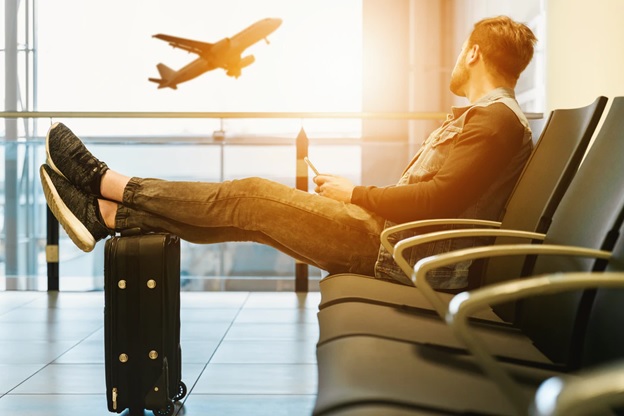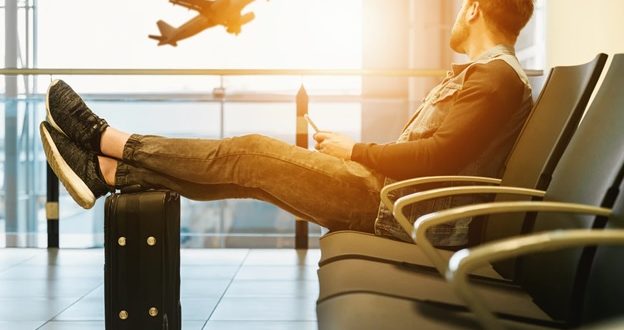With the whole travel industry basically on a standstill and no definitive answer about when things will go back to normal, one thing is clear: traveling after pandemic won’t be the same as before.

Traveling allows you to connect with others, support local economies, and learn new things. However, it has also had its fair share of downs, such as contributing to carbon emissions. Since the coronavirus has forced people to stay at home, the earth has benefited immensely. Wildlife is occupying places previously swamped by humans, and pollution has reduced.
In addition, people are now spending more time with the ones who matter most to them. They have also had to find creative ways of keeping themselves entertained at home, such as playing online games
Many prices may change due to the pandemic. So you have to consider that too. But if you have cash problems while traveling, you can easily transfer £30 free no deposit.
If you’re wondering, “how to travel after pandemic?” And “how will traveling after the pandemic work?” We’ll consider the predictions of what it is going to look like. Let’s get started.
A Slow Return After Pandemic
Besides thinking where to go after pandemic, one thing is certain: travel with eventually return, albeit gradually. People will be wary of international travel and will prefer local destinations for some time. Also, staycations will become more popular. That’s because many individuals have their reservations about the safety of air travel. As such, restoring confidence in consumers will be a critical part of recovery. Road trips are expected to make a huge comeback. And although train travel presents a more sustainable option, road trips help prevent contact with strangers.
When it comes to immigration, the queues in this department will be longer than ever before. One of the biggest worries for countries presently is new infections coming from outside. Some countries, such as South Korea, are now ordering everyone from Europe and the U.S. to isolate for 14 days, even after testing negative for coronavirus. Nations will test at their borders to minimize the risk of cross-border infections. This trend might go on for some time for immigration after pandemic.
An Overhaul for Aviation
Airports will have to re-assess everything from baggage carousels to security lines to ensure passenger safety. According to experts, we can anticipate a dramatic enhancement in the health screenings at airports to help curb the virus. Already, airports have begun using zero-contact temperature scanners. They will also need to administer quick coronavirus tests. Airlines, such as United and American, have announced that flight attendants and travelers alike will have to wear masks on all flights.
Airlines will extend fee waivers in the short term, allowing travelers to make or change their plans easily. Although we were living the golden age of affordable flights, COVID-19 has exerted even more pressure to make airfares cheaper. Given the present economic stress, finding deals will become even more important for those wishing to travel.
That said, many airlines have already been put out of business, while many others have been forced to cut back their routes. In the long run, the affordable flights, easy access, and frequent flights we previously saw as normal will not be the case for a number of years.
New Hotel Standards
When people begin traveling again, they are going to take all the necessary precautions. Hotels will have to heighten their cleanliness and hygiene standards — an important step that will determine their post-corona success.
In line with the social distancing guidelines, hotels will also need to come up with improved ways of both check-in and check-out processes that will involve the strict application of sanitary protocols. For instance, digitizing check-in, putting hand sanitizers at entrances, providing gloves and masks upon request, regularly disinfecting staircase handrails and elevator control panel, deep cleaning commonly occupied areas, and reducing occupancy. With all the new changes, management in hotels will need to smooth the procedures to make the experience less traumatic to their guests, who were previously used to a different kind of setup.
Increased Demand for Villa Rentals
Despite the intensified hygiene protocols, people might still be cautious of interacting with staff in hotels and want to observe social distancing. As such, they’ll be increased demand for villa rentals. Villas present a safer and more ideal solution.
A Challenging Time for the Cruise Industry
In the wake of the coronavirus pandemic, the cruise industry is facing a huge challenge. The majority of the target audience for cruise companies are regarded as high-risk. In addition, the public has lost confidence in the multi-billion-dollar industry. According to reports, cruise ships are being prohibited from entering ports, resulting in stranded sick passengers. For after pandemic travel, cruise companies may have to change their schedules and restructure their docking and disembarking processes to prevent travelers from moving shoulder to shoulder. It will also be crucial for cruise lines to inform the public of the steps they are taking to minimize the risks, such as enforcing more rigorous hygiene standards.
The Return of Travel Agents
Pre-COVID, agents focused on luxury and business accounts as the majority of consumers went online to book travel on their own. Once the pandemic hit, many travelers encountered difficulties getting home. After the pandemic ends, more people, even those who didn’t previously book with a travel advisor, will probably use agents to plan their trips. Thus, they will have some guarantee if things go wrong. After the pandemic, our new world will see travelers value advisors for their guidance and connections that transcend product and destination expertise.
Conclusion
It’s hard to imagine what to do after pandemic is over or a travel life after pandemic 2020. Despite its slow return, travel will come back but with all the precautions and measures put in place by health officials. Ultimately, health safety is and will be a priority in all areas of the travel industry.
In line with that, people have to be patient. Travel will no longer be seen as a right but rather a privilege. The important thing is to look at the implications of all our travel decisions, how we travel, and when we travel. Do you have a personal experience you would like to share? What do you expect after pandemic over in regards to travel? Do you have plans after pandemic? Feel free to tell us your story.




